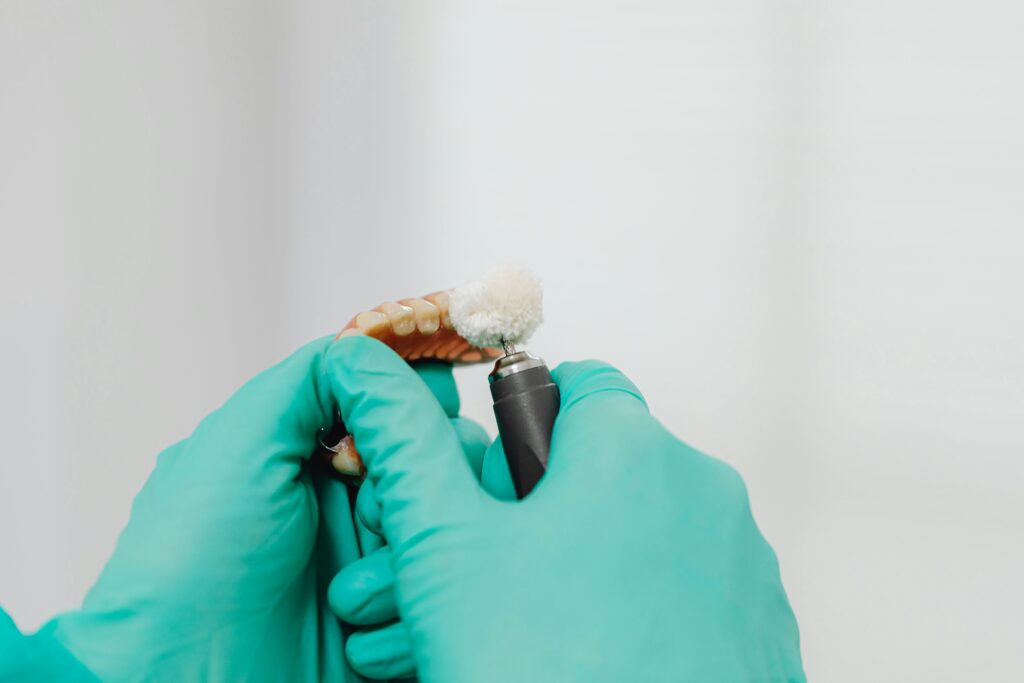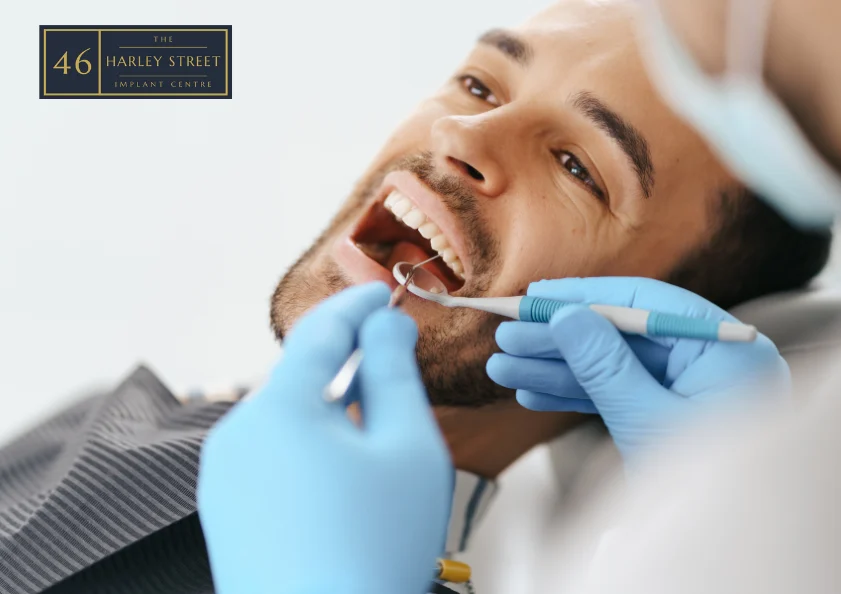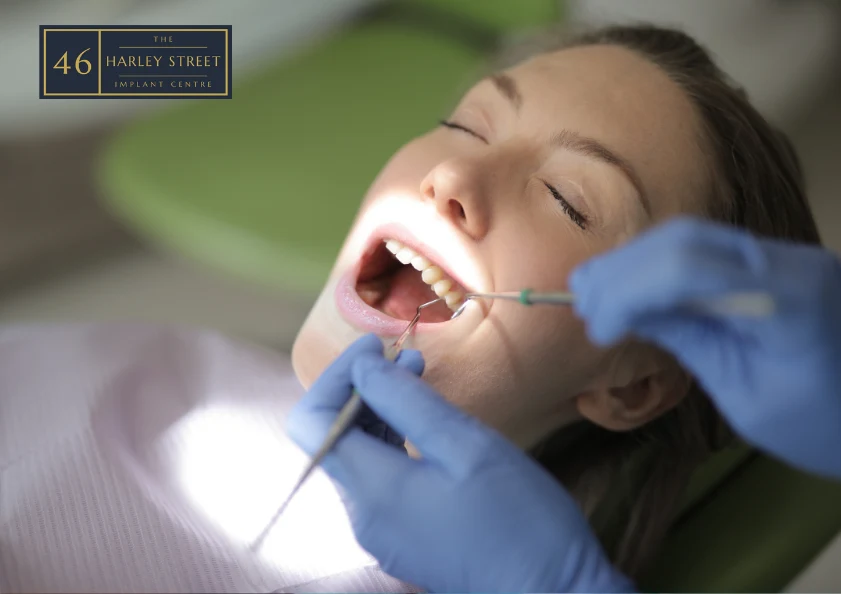What is the cost of Dental Implants in London? When exploring tooth replacement options, one of the most common questions patients ask …
Dental Implants vs Dentures: Which is Right for You?
Dental implants vs dentures… what’s the best option? Tooth loss can significantly impact an individual’s quality of life, affecting their ability to eat, speak, and smile confidently. Modern dentistry provides various solutions for tooth replacement, including dental implants and dentures. Understanding the unique advantages and limitations of each option is crucial in making an informed decision that aligns with your lifestyle, oral health goals, and personal preferences. In this article, we’ll explore the pros and cons of dental implants and dentures to help you decide which is better suited for your needs.

What are implants?
Dental implants are artificial tooth roots made of titanium or zirconia surgically placed into the jawbone. They are designed to mimic the function and appearance of natural teeth, providing a long-lasting and secure solution. Once integrated with the bone, they provide a sturdy and lasting foundation for replacing a single tooth, a bridge, or even securing dentures.
What are dentures?
Dentures are removable false teeth that replace missing teeth. They consist of a gum-coloured acrylic base that supports artificial teeth made from various materials, including acrylic resin, porcelain, or a combination of both. Dentures can be complete (replacing all teeth) or partial (replacing some missing teeth). They rest directly on the gums, or remaining natural teeth, and their stability and comfort depend on their fitting and adhesion.
Dental implants vs dentures - the differences
Dental implants and dentures offer distinct solutions with advantages and drawbacks. Understanding the differences between these two options is crucial in making an informed decision that aligns with your needs and preferences.
Functionality: Dental implants are firmly anchored to the jawbone, providing a stable and comfortable chewing experience similar to natural teeth. Dentures, while functional, may have some limitations in terms of stability and chewing ability, especially with complete dentures.
Appearance: Dental implants are designed to look and feel like natural teeth, blending seamlessly with your existing teeth. Although dentures are also designed to resemble natural teeth, they may have a less natural appearance, especially regarding the gum line and fitting.
Durability: Dental implants are highly durable and can last more than a decade with proper care and maintenance. On the other hand, dentures typically need to be replaced every 6-10 years due to wear and changes in the mouth’s shape over time.
Bone preservation: Dental implants stimulate the jawbone, helping to preserve its density and structure. Conversely, dentures can contribute to bone loss over time, potentially leading to a sunken appearance in the facial area.
Pros and cons of dental implants
Dental implants offer several advantages, making them a highly sought-after solution for tooth replacement.
Dental implants provide a stable and secure foundation for the replacement teeth.
They blend seamlessly with your existing teeth, offering a natural-looking and aesthetically pleasing solution.
The mean life of dental implants is 20 years, making them a long-term investment in oral health.
Dental implants stimulate the jawbone, helping to preserve its density and structure.
Dental implants involve invasive surgical procedures to place them in the jawbone, which can lead to discomfort, swelling, and a longer recovery period. They also have a higher cost and carry potential risks of complications like infection or nerve damage. Furthermore, getting dental implants is a lengthy procedure involving multiple stages, including the initial surgery, healing period, and subsequent restoration placement.
Pros and cons of dentures
Dentures offer a more affordable solution for tooth replacement. Some of the advantages provided by dentures include:
-
Dentures are a noninvasive option for tooth replacement.
-
They allow immediate replacement of missing teeth, restoring your ability to eat and speak comfortably.
-
Dentures typically cost less than dental implants, making them a more affordable option.
-
Dentures are removable appliances, making them easier to clean and maintain.
While dentures provide a convenient solution, they have limited chewing ability compared to implants or natural teeth. Over time, dentures can become loose or slip, leading to discomfort and difficulty eating. Furthermore, dentures fail to stimulate the jawbone, which can contribute to potential bone loss and facial changes. While initial costs may be lower, the need to replace dentures every 6 to 10 years incurs additional expenses, making them a less permanent solution.
Choosing between dental implants and dentures is a personal decision that requires careful consideration of your individual circumstances, preferences, and oral health needs. While dental implants offer a more permanent and natural solution, dentures provide a more affordable and non-invasive option. It’s essential to consult with a qualified dentist who can evaluate your specific situation and guide you towards the best treatment plan for your oral health.
At The Harley Street Implant Centre, our leading dental implant surgeon, Dr Anthony James, will carefully evaluate your situation and guide you in choosing the best tooth replacement option tailored to your specific needs. With years of experience and the latest dental technology, we ensure a comfortable and successful dental restorative procedure. Book your appointment today to regain your confident smile.
When preparing for a dental implant procedure, one of the most common questions patients ask is how dental implant anaesthetic works and …
Clear Teeth Aligners
Clear Teeth Aligners in London Clear teeth aligners have become a popular alternative to traditional braces, with the leading brand Invisalign standing …
What is Composite Bonding?
What is Composite Bonding? A comprehensive guide for patients Composite bonding has become a very popular cosmetic treatment, particularly for those seeking …



